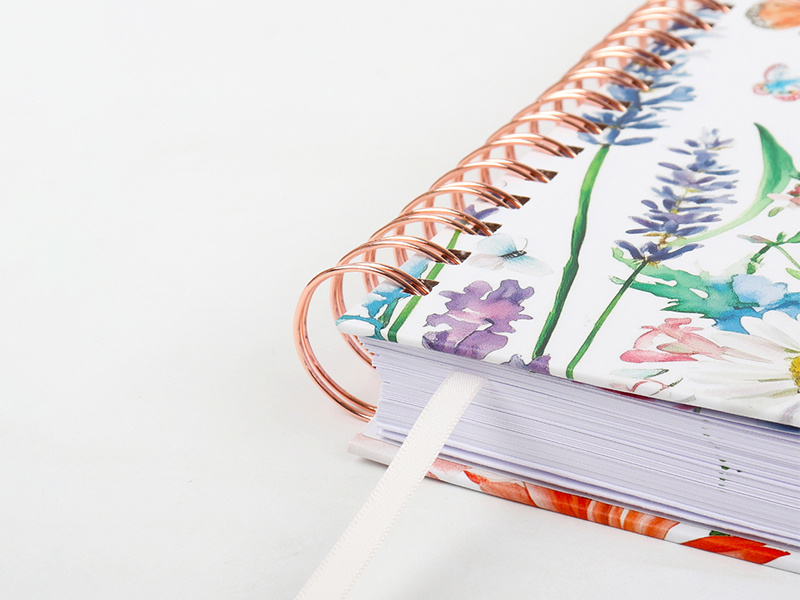Innovation in Notebook Production Technology, Eco-friendly Materials Lead Green Transformation
Notebook production has significantly reduced carbon emissions through innovations such as recycled paper application and plant-based ink development.
Aug 20,2025

Amid the global low-carbon wave, notebook production technology is undergoing a profound transformation from "traditional consumption" to "circular recycling", with the innovative application of eco-friendly materials as the core breakthrough.
In terms of production technology, the maturity of recycled paper technology is a key step. Traditional notebook paper relies on virgin wood pulp, requiring 20 trees to produce 1 ton of paper. In contrast, recycled paper is made from waste paper (such as office waste paper and old books) through processes like pulping, deinking, and bleaching (chlorine-free), reducing wood pulp consumption by 70% and water consumption by 50%. Data from a recycled paper notebook production shows that its carbon emissions are 45% lower than traditional products, with paper strength reaching 80g/㎡, and writing smoothness comparable to virgin paper, fully meeting daily writing needs.
Another breakthrough is the popularization of plant-based inks. Traditional mineral inks contain volatile organic compounds (VOCs) that release harmful gases during printing. Plant-based inks, made from soybean oil and castor oil, reduce VOC emissions by 90%, while improving print color saturation by 15%, making notebook cover patterns brighter and more durable. Additionally, plant-based inks are biodegradable, and discarded notebooks can decompose within 3 months in a compost environment, avoiding soil pollution.
In application fields, educational institutions and enterprises are major promoters of eco-friendly notebooks. Primary and secondary schools purchase recycled paper notebooks, combined with "waste paper recycling programs", forming a closed loop of "use-recycle-regenerate". In office scenarios, eco-friendly notebooks have become a carrier of corporate low-carbon image, with usage rates 30% higher than traditional products.
In the future, with the upgrading of recycled paper bleaching technology (such as enzymatic deinking), paper whiteness will further improve, adapting to more high-end writing needs. The cost of plant-based inks will also decrease with large-scale production, promoting eco-friendly notebooks to the mass market and making green writing a daily norm.
NEXT:





